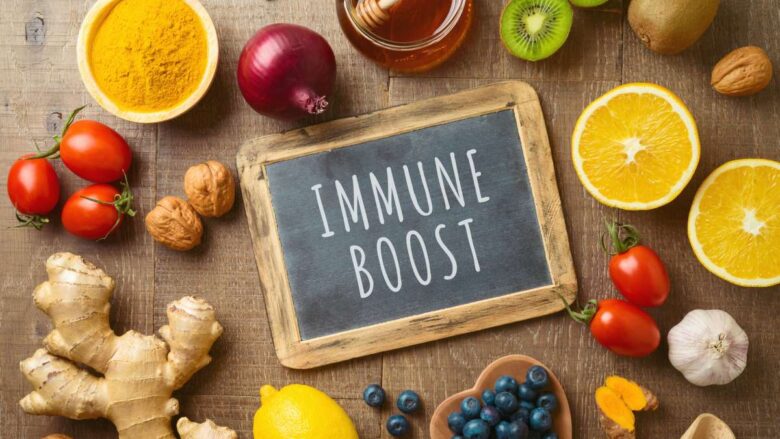The immune system serves as the body’s primary barrier against viruses, infections, and other harmful substances. There are many cells, tissues, and organs in the body that work together to defend the immune system. The immune system needs balance and harmony to function properly, and the foods you eat can have a significant impact on this. One of the most important factors that influence your immune response is your diet. Functional foods not only provide basic nutrition but are also beneficial to your health in many ways. They are also essential for naturally strengthening and supporting the immune system.
How Functional Foods Keep Your Immune System Healthy
Functional foods are rich in minerals and other substances that directly affect the functioning of the immune system. They contain vitamins, minerals, antioxidants, probiotics, and other bioactive substances that help the body find and fight off dangerous bacteria. These foods not only provide energy to the body but also help it heal, recover, and maintain balance. Functional foods focus on food as medicine. It studies several natural sources that work together to strengthen and enhance immune response without synthetic supplements.
How Antioxidants Protect the Immune System
Antioxidants are powerful chemicals found in many functional foods. They help protect cells from damage caused by free radicals. Free radicals are unstable molecules that weaken the immune system and make the body more susceptible to disease. Antioxidant-rich foods, such as berries, dark green leafy vegetables, citrus fruits, and nuts, can reduce oxidative stress and help immune cells function better. Regular consumption of antioxidant-rich foods can help the body better fight off infections and stay healthy.
Vitamins and Minerals That Support the Immune System
Some vitamins and minerals are essential for a healthy immune system. Vitamin C, found in oranges, kiwis, and bell peppers, helps the body produce more white blood cells and make them function better. Vitamin D is essential for boosting the immune system. You can get zinc from sunlight, fatty fish, and fortified foods. Seeds, legumes, and whole grains contain zinc, which helps immune cells grow and function. Many functional foods themselves contain these micronutrients. They can help the body fight off infections and recover quickly from illness.
The Connection Between Gut Health and the Immune System
About 70% of the body’s immune cells are located in the gut, so keeping your gut healthy is essential for your immune system. A healthy gut microbiome helps immune cells grow and function and helps the body defend itself against bacteria. Fermented foods like yogurt, kefir, and sauerkraut are rich in probiotics, which are beneficial microorganisms that help keep your gut healthy. In addition, foods rich in prebiotics, like garlic, onions, and bananas, also help these beneficial bacteria grow. Together, they create a healthy gut environment that boosts immunity and reduces inflammation in the body.
How Inflammation Affects the Immune System
Inflammation is the body’s normal response to injury or infection, but long-term inflammation can weaken the immune system and make you more susceptible to disease. Functional foods can help fight inflammation by providing the body with anti-inflammatory compounds, including omega-3 fatty acids, flavonoids, and polyphenols. Foods like oily fish, olive oil, turmeric, and green tea are known to reduce inflammation. These foods help the immune system function better and respond to threats by reducing long-term inflammation.
Protein and Amino Acids Support the Immune System
Protein is needed to build and repair body tissues, especially those that support the immune system. Antibodies and immune cells need amino acids, the building blocks of protein. Eggs, beans, lentils, nuts, seeds, and lean meats are all functional foods that are rich in protein. Eating various protein sources ensures that your body has what it needs to fight infection and recover quickly if you get sick.
Hydration and Detoxification for Immune Strength
Drinking enough water is a simple but important way to keep your immune system strong. Water helps the body flush out toxins, maintain lymphatic function, and keep mucous membranes moist. Mucous membranes serve as the primary barrier against bacteria. Some healthy beverages, such as herbal teas, bone broths, and water with added fruits or herbs, can also provide the immune system with extra nutrients. Staying hydrated helps the body function properly and keeps the immune system working optimally.
Herbs and Spices as Natural Immune Boosters
Many herbs and spices used in traditional medicine help boost the immune system. For example, garlic contains allicin, which is known to kill bacteria and viruses. Ginger facilitates digestion and diminishes inflammation, two aspects intimately associated with immunity. Curcumin is a molecule with powerful anti-inflammatory and antioxidant properties found in turmeric. You can easily add these natural substances to your daily meals and drinks to boost your immune system and overall health.
Conclusion
Your body’s natural defense system is your immune system, and it needs the right nutrition to function properly. Functional foods are a great way to boost this defense because they contain important nutrients, antioxidants, probiotics, and anti-inflammatory compounds. You can boost your immune system naturally by eating a variety of immune-supporting foods every day. These foods include fruits, vegetables, lean proteins, healthy fats, and fermented foods. Functional foods are a simple and effective way to stay healthy and energetic all year round. They help you stay strong, energetic, and healthy.
FAQs
1. What do functional foods do?
Functional foods are natural foods that, in addition to providing nutrients, also have health benefits. They help the body function properly and prevent diseases from developing or worsening. For example, they help strengthen the immune system.
2. Do functional diets really help the immune system?
Yes, functional foods contain vitamins, minerals, antioxidants, and probiotics that help strengthen the immune system.
3. Which vitamins are best for keeping your immune system healthy?
Zinc, selenium, and vitamins C, D, and E are important nutrients for a strong immune system.
4. How does a healthy gut affect the immune system?
A large part of your immune system is located in your stomach. Healthy gut flora helps the immune system function properly and keeps harmful bacteria at bay.
5. Which nutrients help the body fight inflammation?
Foods rich in omega-3 fatty acids, antioxidants, and polyphenols, such as oily fish, berries, leafy greens, and turmeric, can help reduce chronic inflammation.




